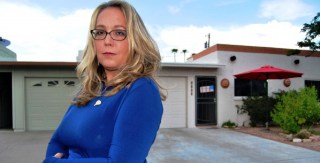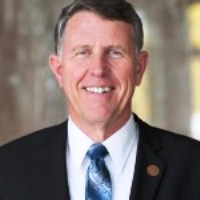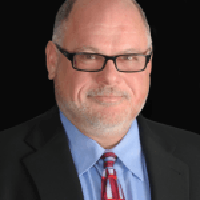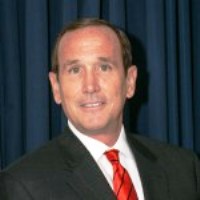|
Article
Courtesy of The Scottsdale Independent By Terrance
Thornton Published
November 10, 2016
A group of Scottsdale residents are spearheading an effort to
evoke legislative change meant to corral the powers of management companies
hired by local homeowners associations statewide.
A group of Arizona citizens are gathering at the capitol every month trying to
force a conversation on the legal powers and lack of oversight and regulation of
HOA management groups throughout the Phoenix metropolitan area.
|
And, they have a
sympathetic ear at the Arizona Legislature.
Arizona Sen. David Farnsworth (R) on the third Monday of every
month hosts what he has coined, a “mastermind group” allowing
everyday residents, community advocates and legal professionals
to look at how certain powers granted to HOAs by the Arizona
Legislature can be reined in.
“The goal of the
mastermind group is to suggest improvements to the homeowner
association statutes and encourage involvement in getting the
changes passed through the Legislature,” Sen. Farnsworth said in
a Nov. 1 statement.
Sen. Farnsworth says his office is pursuing the possibility of
introducing new bills focused on some of the financial powers
installed through legislation HOAs now possess. |
|
The late Jill Schweitzer Thursday, Aug. 4 in south
Scottsdale where she tirelessly fought for homeowners’ rights.
|
“We have opened 10 different folders, which may or may not be introduced,” he
pointed out. “One has to do with not allowing homeowner associations to turn off
a family’s water for nonpayment of homeowner association assessments.”
But while other accusations have been raised, Sen. Farnsworth contends proof is
harder found than claims made.
|
“I have been receiving emails from a
constituent concerning the possibility that financial fraud may
be occurring,” he said of certain banking practices allegedly
enjoyed by HOA management groups.
“This certainly has gotten my attention
and we are watching the development of this situation closely. I
have been convinced that the potential for financial fraud
exists. If any of your readers have evidence, I would encourage
them to contact the appropriate enforcement agencies and would
appreciate a copy being sent to my office.”
Sen. Farnsworth says he is dedicated to giving more powers to
local homeowners.
“I am convinced that there is corruption
within our society,” he said. “And would very much like to do my
part as a state senator to root it out! However, of course, it
is very challenging to discover and prove corruption.”
|
|
Sen. David Farnsworth (R)
|
The citizen group now has a working document members have agreed as a starting
point to begin to address myriad issues they say exist. These issues are:
-
Real estate disclosures
-
Financial aspects
-
Municipal risk
-
The abuse of people
-
Dispute resolution
-
First Amendment issues
-
Accounting practices
-
Information technology
While residents remain steadfast to assertion things need to
change, a founding member of HOA advocacy unexpectedly lost her life recently.
Jill Schweitzer, who has penned a book on HOA issues and
produced videos on local issues impacting homeowners that can be viewed at
www.hoasavers.com
, passed away tragically due to complications stemming from an asthma attack
that occurred Sunday, Oct. 25. She was 51 years old.
“We have had great participation and good results so far,” said Sen. Farnsworth.
“However, we are all sorrowful because of the tragic death of one of our most
passionate and hardest working members Jill Schweitzer.”
Scottsdale resident John Sellers, a longtime international financier, contends
basic money laundering controls are not being followed by HOA management
companies.
He contends following the adoption of the Patriot Act banks are now required to
intimately understand where deposits are coming from and specifically who is
making them.
Mr. Sellers says when HOA members pay their dues, those dues are typically
lumped together and deposited into the bank of the management company’s
choosing, which is typically unknown to members of the governing body.
On most transactions, records show, the executive director of an HOA management
company is making deposits on behalf of the constituency.
The citizen group would like to see two new provisions emboldened in state law,
which are:
-
A new statute to establish comprehensive but basic rules
for the control and use of association funds, define a process for the
development of a plan for the use of reserve funds for long term maintenance
and upgrades to common areas, and to define the fiduciary responsibility of
association boards.
-
A new statute to define the code of conduct and
indemnification for association board directors, to establish limits on what
boards can establish as rules for the association beyond specific authority
of the declaration, and to prevent indemnification of community managers for
violating any laws and mismanagement of community finances.
“We are trying to layout all of the issues,” Mr. Sellers said
Oct. 31 at the Scottsdale Independent newspaper office.
“You are supposed to know who your clients are. It is the point of entry where
you can protect against money laundering. These are basic customer
identification procedures.”
Mr. Sellers contends this lack of oversight gives undue sway to HOA management
groups with local banking institutions.
“The average HOA board member has no idea who they bank with. That’s a problem,”
he said. “They (HOA management groups) often have a master agreement typically
done with the developer of the community that empowers the HOA management group.
When you buy into an HOA you are agreeing to those terms.”
Mr. Sellers says basic banking controls are not being observed.
“The banks have no idea who their clients are,” he said. “The people who are
behind this, absolutely know this. They have built a system that does not allow
for transparency.”
The power of influence
HOA advocates agree they are fighting an uphill battle lined with exclusive
event access, gourmet brunches and special favors.
“Typically the hired management companies
have relationships with banks,” said HOA Attorney Steve Cheifetz
in a Nov. 1 phone interview. “And, all of the funds are kept by
the bank chosen by the management company. There is a big
benefit to the bank as the money deposits are done regularly.
One management company could have hundreds or more customers and
all of their funds put into one bank.”
Mr. Cheifetz was reticent to say any wrong doing was occurring,
but did point to powerful lobbying efforts on the behalf of HOA
management groups that set a stiff roadblock to any kind of
legislative reform.
“Just passing the law doesn’t fix anything — there is no
enforcement,” he said. “It is a quandary and there is no
solution. There are some good laws on the books but no one
enforces them. The problem is these groups are quasi-governments
and our government is filled with checks and balances. A
government without checks and balances runs a muck.” |
|
Attorney Steve Cheifetz
|
One of the most powerful lobbying groups, residents say, is the Community
Association Institute, which employs the Phoenix-based DeMenna and Associates
lobbying outfit.
“We are the leading organization, in
essence who lobby for the best interests of the homeowner,” said
Kayte Comes, executive director of the Central Arizona Chapter
of the Community Associations Institute in a Nov. 1 phone
interview.
“We are not a roadblock for the industry. We are the leading
entity to decide what is best for HOAs, the homeowners. We were
created to be an advocate for what is in the best interests of
local homeowners.”
Kevin DeMenna of DeMenna and Associates echoes the same
sentiment.“Realistically, the path
to success on HOAs is through the middle,” he said in a Nov. 1
phone interview. “We take our direction of specific issues but
we have never been invited to the masterminds group.”
Mr. DeMenna says the citizen group is
known well for its strong opinions and lack of consensus. |
|
Kevin DeMenna
|
“Being around as long as I have you notice certain patterns over time,” he said
noting his 37 years of lobbying experience. “The session will begin with a group
that is notorious for their strong opinions.”
Financial concerns raised by Mr. Sellers specifically speaks to his effort to
gain income, Mr. DeMenna says.
“Is Mr. Sellers making money? And is he trying to make money in Willow Creek,”
he pointed out of efforts Mr. Sellers is making regarding an HOA in the Willow
Creek community.
“You have a couple of Realtors. How do each of us pay our
bills? The masterminds appear to be a band of rebels who have been wronged by
the HOAs. For each of us, it is important to know how we pay our bills.”
In regard to accusations about questionable banking practices, Mr. DeMenna
responded, “I think Mr. Sellers is being creative.”
“I am on the board, as a resident, I am not concerned with the management
company and where they bank,” he said. “The management company is the
consigliere — I expect my management company to take care of it.”
Mr. DeMenna says banking issues have never been raised before.
“There may be merit here, but where an HOA banks has not risen to the level of
policy attention before,” he said. “I suspect there is a reason for that.”
A perspective of preservation
Scottsdale resident Dennis Legere, who has drafted the majority of proposed
legislative changes, says he is trying to help root out the bad actors as many
good HOAs exist.
“I’ve drafted most of our proposed legislative changes from a perspective of
preserving and respecting those associations that are truly working hard for
their communities and not over burdening them with regulation that is cumbersome
and makes their work harder,” he said in a Nov. 1 statement.
“(We are) attempting to put an end to the abuses of some organizations defying
the laws and the basic rights and respect of the homeowners that they serve.”
Mr. Legere points out the proposed changes are extensive, but thoughtful.
“We have a total of 19 different proposals that range from simple clarification
of existing statutes to totally new statutes to address areas that have never
been addressed before,” he explained. “We have attempted to do all of this
without proposing any new bureaucracy or oversight agency to do our work for us.
Whether we like it or not the entire enforcement of all existing laws relative
to HOAs is left to the homeowner.”
Better homeowner protections needs to be established and observed, Mr. Legere
says.
“The entire HOA industry including boards, management companies and attorneys
have absolutely no incentive to comply with a strict interpretation of the law
unless that interpretation benefits them,” he said. “They are all indemnified
from liability and have the unlimited resources of the homeowners money to back
their positions, any cost of litigation is simply passed on to the association
members, and the members are required to pay that cost.”
Mr. Legere explains the deck is stacked against a homeowner who disagrees with
an HOA management company.
“All the homeowners have are their own resources and the law,” he said.
“Most of our efforts are in clarifying the law to eliminate the unintended
interpretations and abuses and provide us with clear statutes that for now at
least we can defend. Maybe someday a mechanism will be in place to enforce the
laws of this state relative to homeowner that does not require the homeowner to
risk their money to do so. Until that day we fight on with any tool that we can. |



